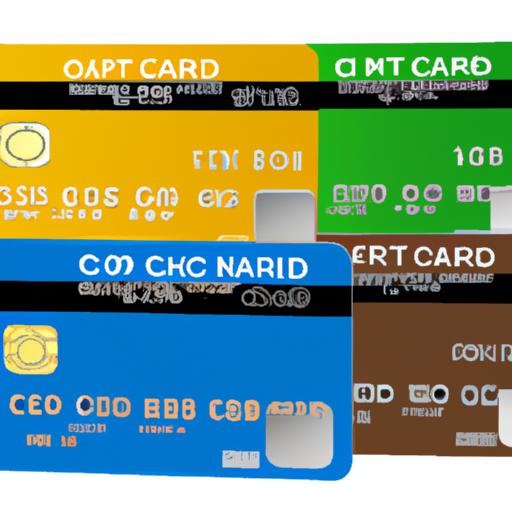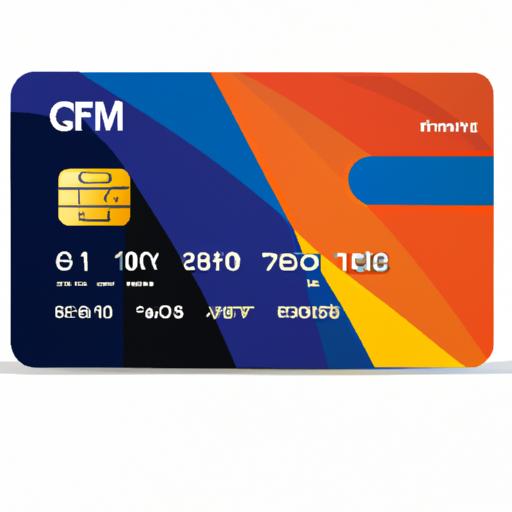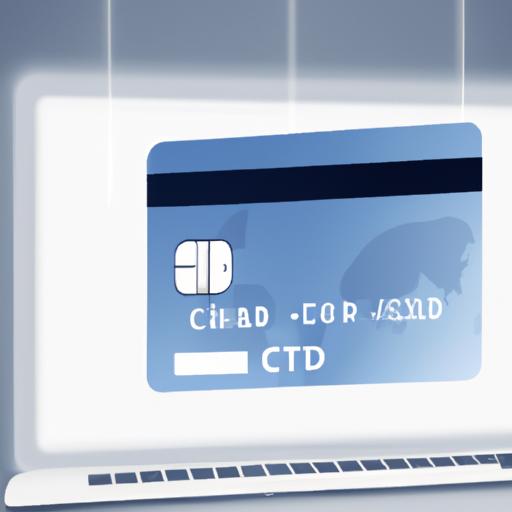Maximizing Sales: The Power of Payment by Credit Card
Introduction
In today’s fast-paced digital world, the way we make purchases has evolved dramatically. One of the most popular and convenient methods of payment is through credit cards. But what exactly does it mean to pay by credit card? Simply put, it involves using a plastic card issued by a financial institution that allows the cardholder to borrow funds to make purchases. This method of payment has become increasingly prevalent, with more and more businesses recognizing the importance of offering credit card payment options to their customers.
The significance of providing credit card payment options cannot be overstated. Not only does it cater to the needs and preferences of modern consumers, but it also plays a crucial role in enhancing the overall shopping experience. By enabling customers to pay with their credit cards, businesses can streamline the checkout process, reduce friction in transactions, and ultimately drive sales. So, how can you leverage the power of payment by credit card to boost your business? Let’s delve deeper into the benefits and best practices of this payment method.
Benefits of Payment by Credit Card
Convenience for Customers
Paying by credit card offers unparalleled convenience for customers. With just a swipe or tap, transactions can be completed swiftly, eliminating the need to carry large amounts of cash or write checks. Whether shopping online or in-store, credit cards provide a seamless and hassle-free payment experience, allowing customers to make purchases with ease and efficiency.
Increased Security Measures
One of the key advantages of payment by credit card is the enhanced security measures it offers. Credit card transactions are protected by encryption and fraud detection technologies, reducing the risk of unauthorized charges or identity theft. In the event of fraudulent activity, most credit card companies provide liability protection, giving customers peace of mind and added security when making purchases.
Ability to Earn Rewards or Cashback
Another enticing benefit of payment by credit card is the opportunity to earn rewards or cashback on transactions. Many credit card issuers offer rewards programs that allow cardholders to earn points, miles, or cashback on eligible purchases. By leveraging these incentives, customers can maximize the value of their spending and enjoy additional perks for using their credit cards.
How to Accept Payments by Credit Card
Setting up a Merchant Account
To start accepting payments by credit card, the first step is to set up a merchant account. A merchant account is a type of bank account that allows businesses to accept payments via credit or debit cards. This account is essential for processing transactions and receiving funds from card payments. To set up a merchant account, you will need to choose a reliable payment processor and provide necessary documentation such as business registration details and banking information.
Choosing a Payment Processor
Selecting the right payment processor is crucial for smooth and secure credit card transactions. Payment processors act as intermediaries between merchants, customers, and financial institutions, facilitating the authorization and settlement of transactions. When choosing a payment processor, consider factors such as transaction fees, security features, integration options, and customer support. Look for reputable payment processors that offer a seamless payment experience for both you and your customers.
Integrating Payment Gateways on Your Website
Integrating payment gateways on your website is essential for enabling online credit card payments. Payment gateways are online services that securely transmit payment information between your website and the payment processor. To integrate payment gateways on your website, you can use e-commerce platforms or plugins that support various payment options. Ensure that the payment gateway is PCI DSS compliant to maintain the security of cardholder data and provide a seamless checkout experience for your customers.
Best Practices for Payment by Credit Card
Secure Payment Processing
When it comes to payment by credit card, security is paramount. Implementing secure payment processing mechanisms is essential to safeguard sensitive customer information and prevent fraudulent activities. By utilizing encryption technology, tokenization, and secure payment gateways, businesses can ensure that payment transactions are protected from potential threats and breaches.
Compliance with PCI DSS Standards
Adhering to Payment Card Industry Data Security Standard (PCI DSS) guidelines is a critical aspect of maintaining the security and integrity of credit card transactions. Compliance with these industry regulations helps businesses establish trust with customers, reduce the risk of data breaches, and avoid costly penalties. By following PCI DSS requirements, businesses can enhance their reputation and demonstrate their commitment to safeguarding customer data.
Offering Multiple Credit Card Options
Diversifying the range of credit card options available to customers can enhance the shopping experience and cater to individual preferences. By accepting a variety of major credit cards such as Visa, Mastercard, American Express, and Discover, businesses can accommodate a broader customer base and increase the likelihood of completing successful transactions. Providing multiple credit card options demonstrates flexibility and convenience, ultimately driving customer satisfaction and loyalty.
Common Challenges and Solutions
Dealing with Chargebacks
Chargebacks can be a headache for businesses that accept credit card payments. These occur when customers dispute a transaction with their credit card issuer, leading to the funds being reversed. To mitigate the impact of chargebacks, it’s essential to maintain clear records of transactions, communicate effectively with customers, and follow proper dispute resolution procedures. By staying proactive and transparent, businesses can minimize the risk of chargebacks and maintain positive relationships with their customers.
Addressing Fraud Concerns
Fraud is a prevalent issue in the world of online payments, and businesses must be vigilant in safeguarding against fraudulent activities. Implementing robust security measures, such as encryption technologies and fraud detection tools, can help prevent unauthorized transactions and protect sensitive customer information. Additionally, educating employees and customers about common fraud schemes and promoting awareness can further enhance security protocols. By prioritizing fraud prevention, businesses can instill trust and confidence in their payment processes.
Handling Declined Transactions
Declined transactions can be frustrating for both customers and businesses alike. Whether due to insufficient funds, technical issues, or security concerns, declined transactions can disrupt the purchasing experience and potentially lead to lost sales. To address this challenge, businesses should communicate clearly with customers about the reasons for transaction declines and provide alternative payment options when possible. By offering seamless support and guidance during declined transactions, businesses can minimize disruptions and ensure a positive shopping experience for their customers.






